MoonBit's Package Manager Tutorial
Overview
MoonBit's build system seamlessly integrates package management and documentation generation tools, allowing users to easily fetch dependencies from mooncakes.io, access module documentation, and publish new modules.
mooncakes.io is a centralized package management platform. Each module has a corresponding configuration file moon.mod.json, which is the smallest unit for publishing. Under the module's path, there can be multiple packages, each corresponding to a moon.pkg.json configuration file. The .mbt files at the same level as moon.pkg.json belong to this package.
Before getting started, make sure you have installed moon.
Setup mooncakes.io account
Note: If you don't need to publishing, you can skip this step.
If you don't have an account on mooncakes.io, run moon register and follow the guide. If you have previously registered an account, you can use moon login to log in.
When you see the following message, it means you have successfully logged in:
API token saved to ~/.moon/credentials.json
Update index
Use moon update to update the mooncakes.io index.
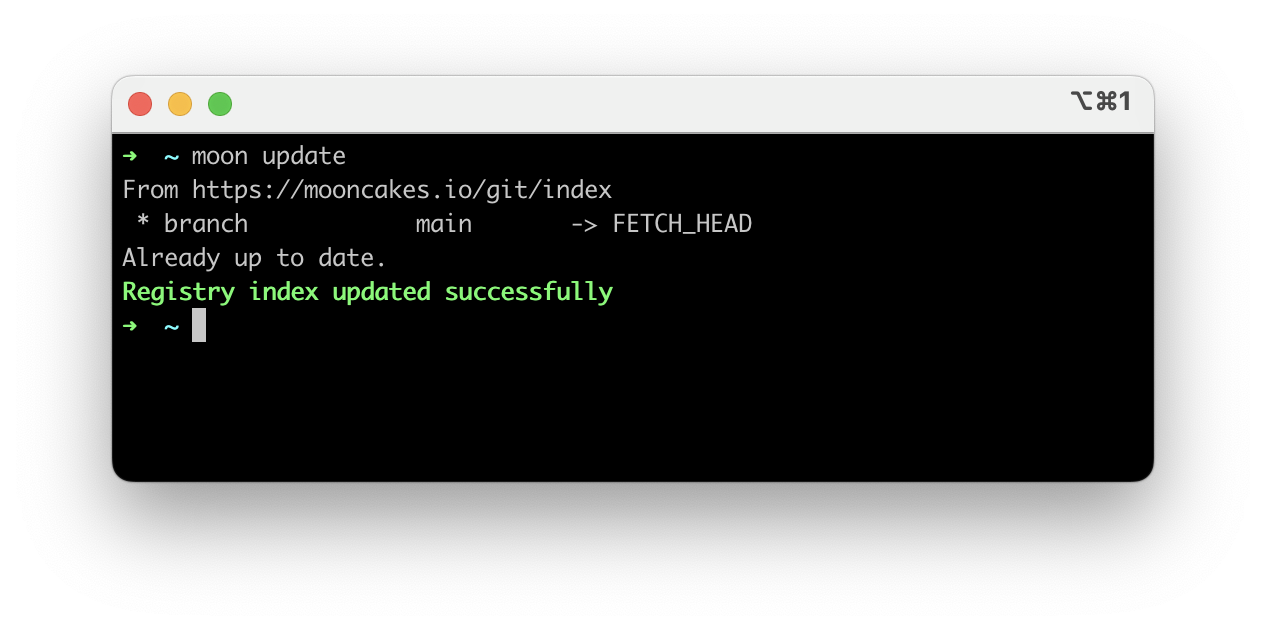
Setup MoonBit project
Open an existing project or create a new project via moon new:
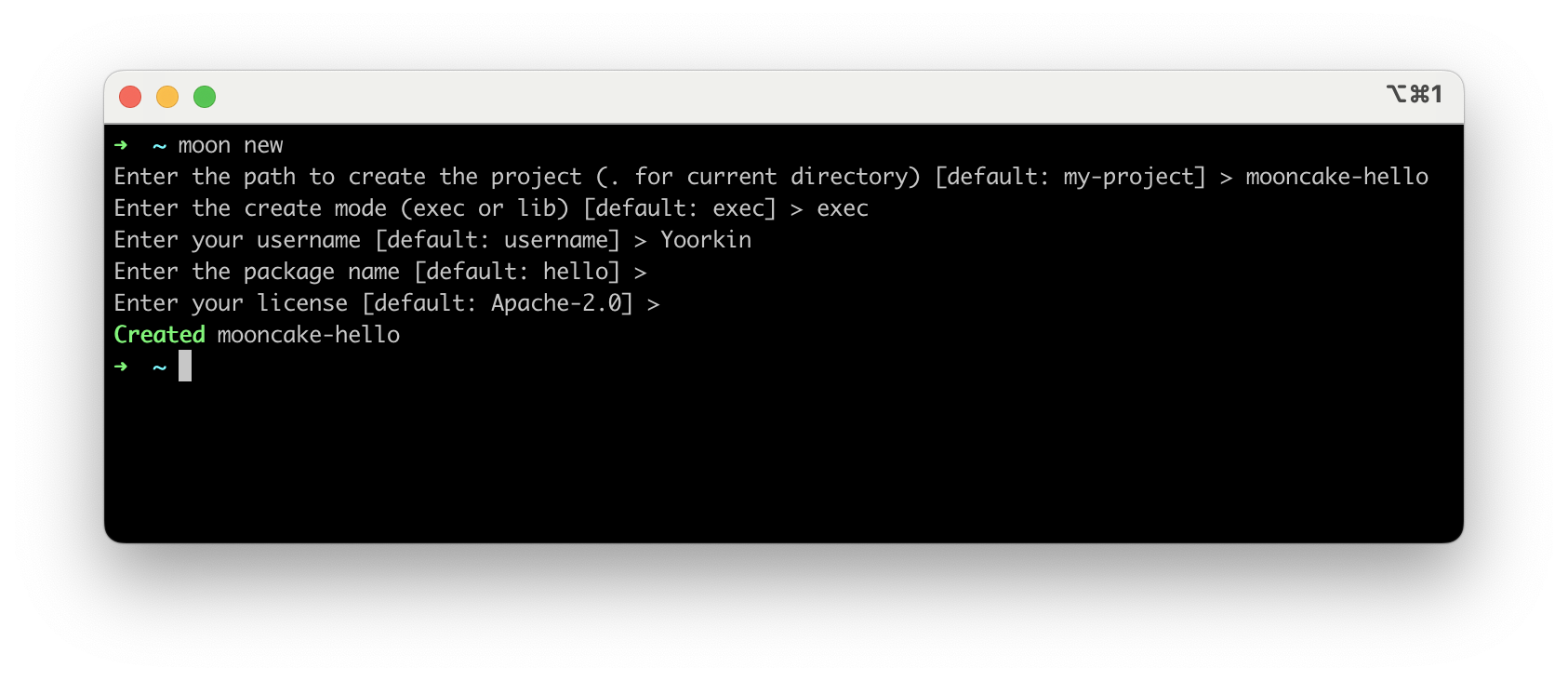
Add dependencies
You can browse all available modules on mooncakes.io. Use moon add to add the dependencies you need, or manually edit the deps field in moon.mod.json.
For example, to add the latest version of the Yoorkin/example/list module:
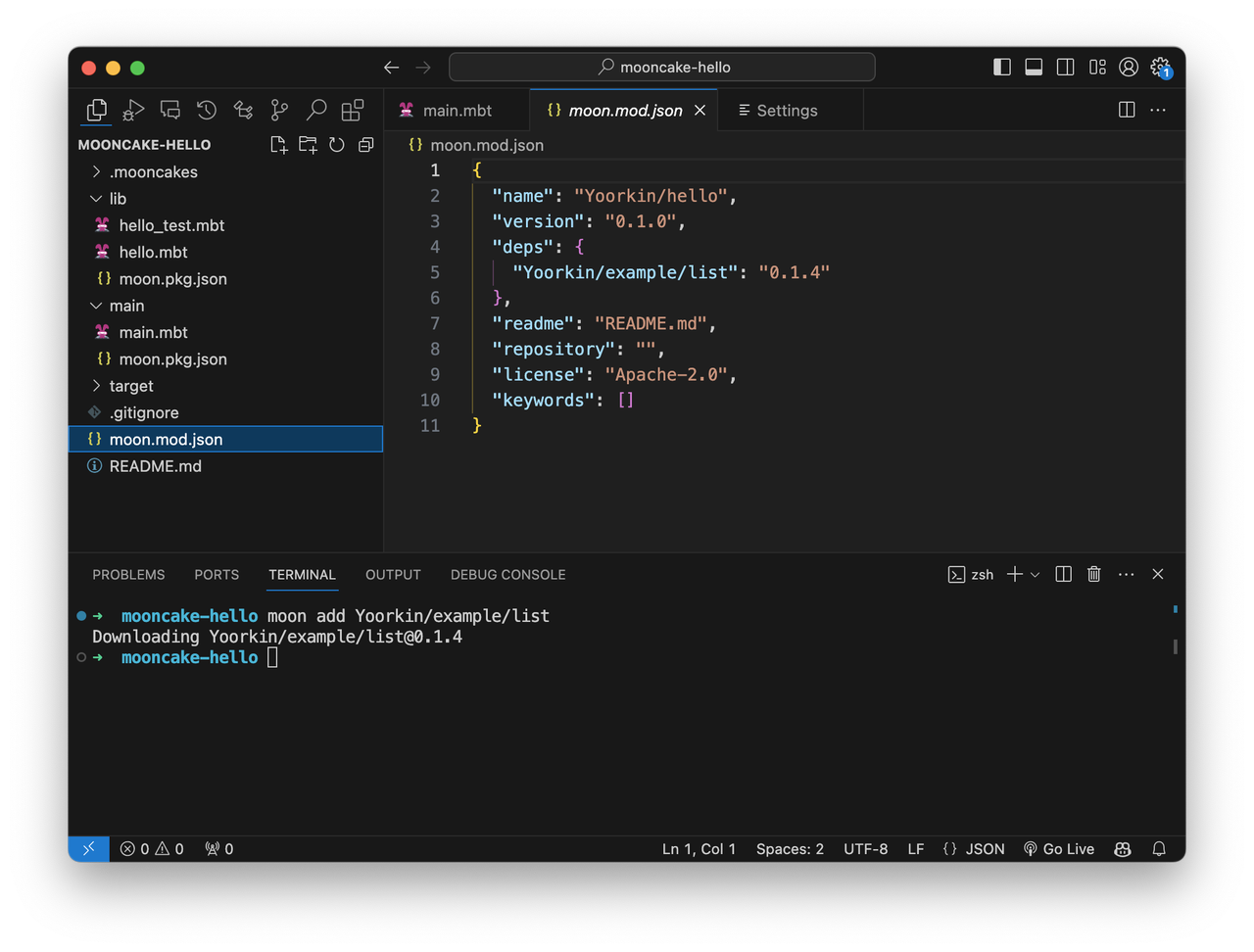
Import packages from module
Modify the configuration file moon.pkg.json and declare the packages that need to be imported in the import field.
For example, in the image below, the hello/main/moon.pkg.json file is modified to declare the import of Yoorkin/example/list in the main package. Now, you can call the functions of the third-party package in the main package using @list.
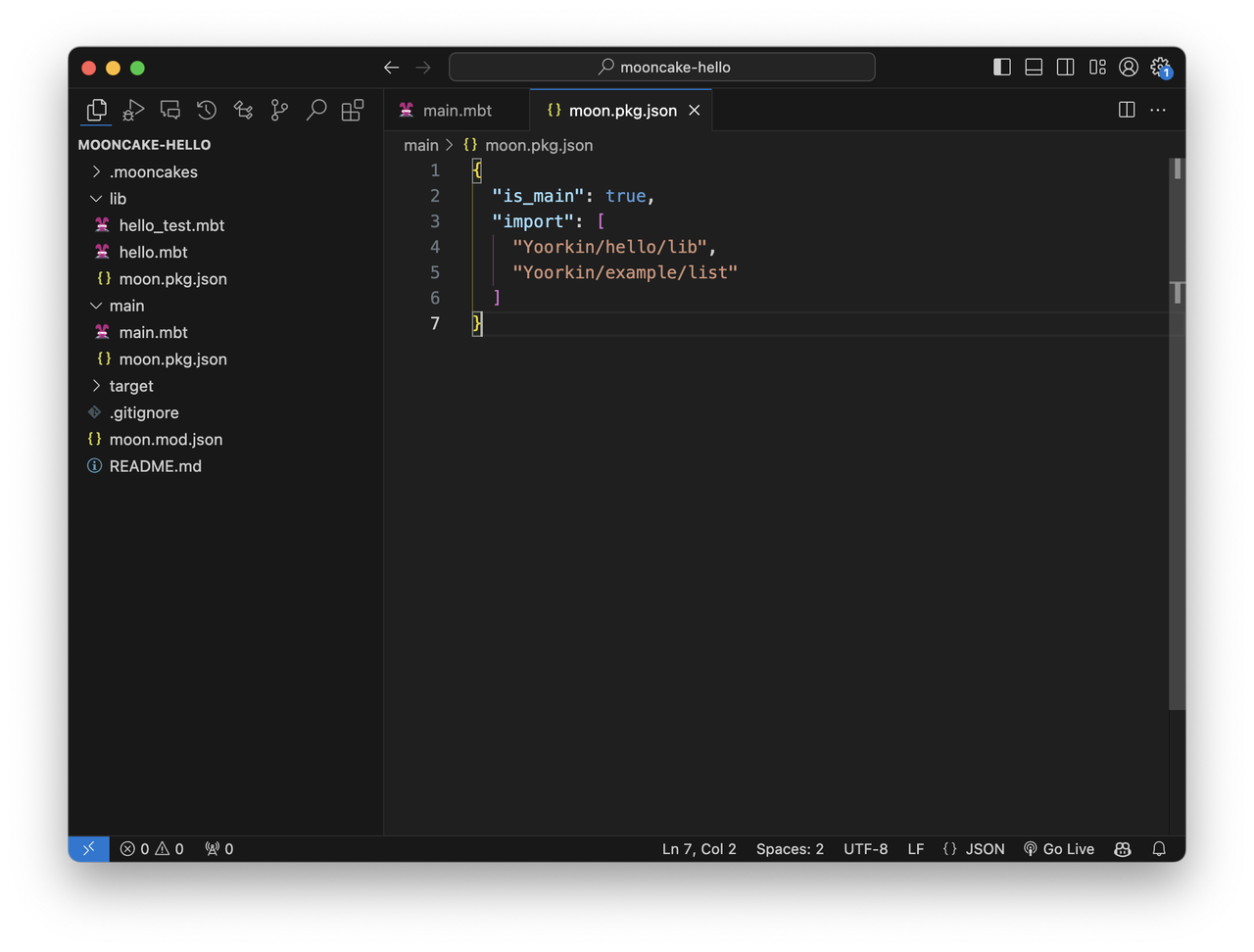
You can also give an alias to the imported package:
{
"is_main": true,
"import": [
{ "path": "Yoorkin/example/list", "alias": "ls" }
]
}
Read the documentation of this module on mooncakes.io, we can use its of_array and reverse functions to implement a new function reverse_array.
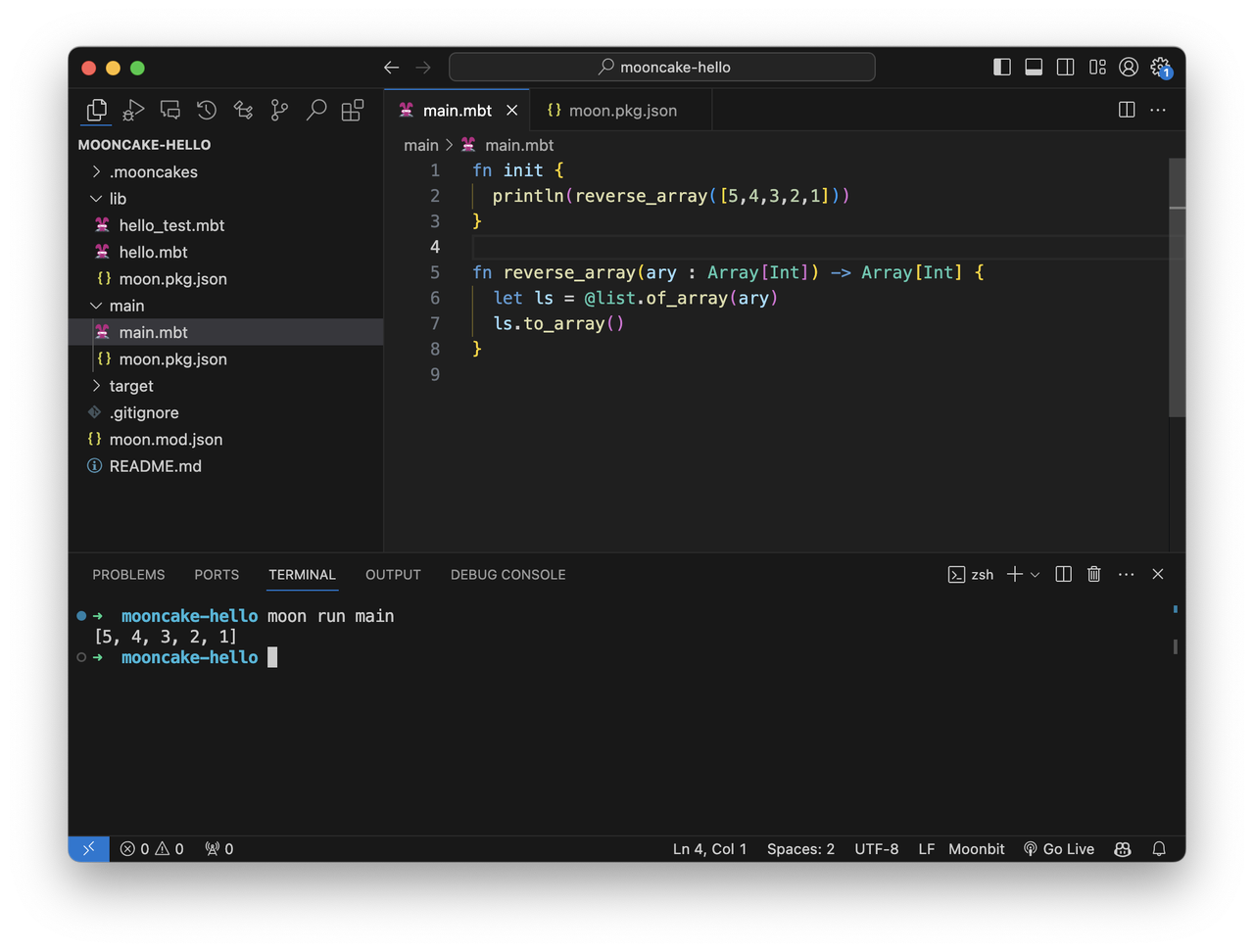
Remove dependencies
You can remove dependencies via moon remove <module name>.
Publish your module
If you are ready to share your module, use moon publish to push a module to
mooncakes.io. There are some important considerations to keep in mind before publishing:
Semantic versioning convention
MoonBit's package management follows the convention of Semantic Versioning. Each module must define a version number in the format MAJOR.MINOR.PATCH. With each push, the module must increment the:
- MAJOR version when you make incompatible API changes
- MINOR version when you add functionality in a backward compatible manner
- PATCH version when you make backward compatible bug fixes
Additional labels for pre-release and build metadata are available as extensions to the MAJOR.MINOR.PATCH format.
moon implements the minimal version selection, which automatically handles and installs dependencies based on the module's semantic versioning information. Minimal version selection assumes that each module declares its own dependency requirements and follows semantic versioning convention, aiming to make the user's dependency graph as close as possible to the author's development-time dependencies.
Readme & metadata
Metadata in moon.mod.json and README.md will be shown in mooncakes.io.
Metadata consist of the following sections:
license: license of this module, it following the SPDX conventionkeywords: keywords of this modulerepository: URL of the package source repositorydescription: short description to this modulehomepage: URL of the module homepage
Moondoc
mooncakes.io will generate documentation for each modules automatically.
The leading /// comments of each toplevel will be recognized as documentation.
You can write markdown inside.
/// Get the largest element of a non-empty `Array`.
///
/// # Example
///
/// ```
/// maximum([1,2,3,4,5,6]) = 6
/// ```
///
/// # Panics
///
/// Panics if the `xs` is empty.
///
pub fn maximum[T : Compare](xs : Array[T]) -> T {
// TODO ...
}
You can also use moon doc --serve to generate and view documentation in local.